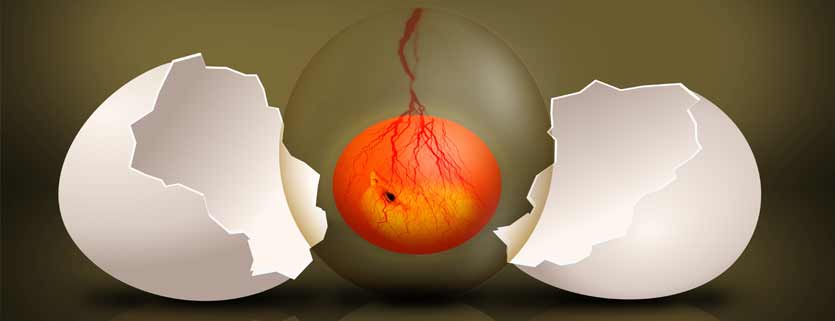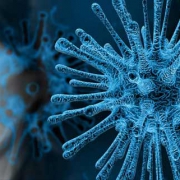How COVID-19 will reshape energy
/0 Comments/in Long Articles/by Rudolf HuberIn 1347, a ship of the Genoese merchant fleet arrived in Messina (Sicily). Most of the crew had already deceased when it pulled into the harbor. They had fallen victim to a mysterious affliction. The Black Death had arrived in Europe once again.
From Messina, the disease took Europe in a storm. Historical sources claim that the Black Death took between 20 – 25 Million lives until it subsided in 1353. 6 years of absolute misery of the worst imaginable kind. A full third of the European population was gone.
This was not Europes first brush with the Black Death though. In 541 CE, a full 800 years before the Messina affair, the Byzantine Empire got hit with the plague. It prevented Justinian to re-establish the Roman Empire in its old borders.
Justinian was one of Rome’s greater emperors. His failure allowed the new and fragile feudal structures the Germanic invaders brought to take deep roots. After its dissolution, the lands of the former Western Roman Empire implemented a land-based instead of a skills-based system of value creation. And this new world order had been put on steroids by the arrival of the Justinian plague.
Fast forward into 1347 again, this feudal world order was put on the ropes in turn. And the culprit was a new bout of the same plague that had cemented feudalism about 800 years later.
Suddenly, there were not enough hands anymore to work the plots of land that the feudal overlords reigned over. Fewer peasants meant that they had much larger plots of land available. Suddenly, their labor was sought after. And with that leverage, they were able to demand more personal rights.
Besides, the plague played no favorites. It killed noblemen and peasants with equal ferocity. This shook people’s belief in hitherto strict class distinctions. Finally, people moved a lot to escape the disease. Paradoxically, this also spread it even further. And it also meant that people had to sell wares and talents instead of raw labor. Another blow to the land-based system.
The Black Death left in its wake a lower class in defiance. People started to question century-old dogmas. This ultimately led to the enlightenment and the age of the individual. It’s cruel to see it that way, but the Black Death was a blessing in disguise.
Fast forward to today and most countries chafe under strict quarantine restrictions. Easy going life is no more. It’s hard to see the silver lining but it is there.
The current COVID-19 outbreak will change us. Some of those changes will eventually turn out to produce many positive effects.
Should we intentionally seek to have more tragedies in our lives because we want their positive effects? Hell no.
There is enough drama without us putting some on top. But when drama strikes, lest make the best of it.
We are not living in aunt Marge’s rose garden. Reality is messy. Things don’t work out as intended. People screw up.
As the Scottish philosopher David Hume used to say “Stercus accidit” or “Shit happens” in modern English.
So, what are they then? What are the potential long-term benefits of COVID-19?
Some are fairly obvious. Teleworking will take a boost. Virtual Reality will take a new meaning. Teamwork and collaboration will take new meanings. So will travel.
But this is the boring stuff. At least to me as an energy man.
The most important change it brings is that it gives people a taste of what life outside Candyland may look like.
We like to fool ourselves into thinking that things will somehow work out even if we have no idea how.
We like to think that money falls from the sky and that super-expensive schemes that don’t produce the results we need will somehow get sorted out. All without us chipping in more money.
We don’t like our politicians but somehow we trust that they will still fix things.
And we believe in all kinds of fear porn about the end of the world.
What COVID does right now is giving us a taste of what the world under something like the Green New Deal is going to be like. And let’s be clear – that’s just a little taster as the real consequences of the GND will be way more brutal.
How that?
COVID is already now responsible for some of the biggest economic shrinkage we have seen for many decades. If the crisis drags on, we will see mass unemployment, drastically shrinking economies and the end of individualism for most of us. Poor people are not free.
But what it also shows is the limits of the current drive for renewables and for a zero-carbon economy. Because those two trends are dependent on a couple of factors to thrive.
Globalization
Renewable Energy and Electric Vehicles need lots of cheap stuff from China to prevent CAPEX requirements to go out of the window. Right now, batteries and solar panels from China are not cheap enough to allow subsidy-free RE and EV’s. Imagine what happens when those relatively cheaper Chinese imports become even more expensive? They go out of the window again.
COVID-19 has opened Pandoras Box for Globalisation. People and politicians start to realize that a developed economy cannot outsource its entire industrial capacity to other countries. Greens will have to recognize that killing essential industries in developed countries means wasting the environment in developing countries. This is not really sustainable
Get used to the idea that the concept of cheap renewables will shatter. It was a fluke anyhow. It just becomes way more obvious now.
Subsidies for Show Off schemes
Economies take a beating as a result of COVID-19. The pandemic might just have been the trigger for pre-existing and unresolved economic issues to show their consequences.
That does not change the fact that economies will have to take care of larger numbers of jobless. Countries will also need a lot of money to support their societal fabric.
There will be no more money for Show-Off EVs and neverending subsidy schemes for RE. Kiss those taxpayer-funded White Elephants goodbye. We need things that work without the state nanny.
Evermore interconnection and interdependence
RE needs large networks and systems to translate its intermittent energy sources into reliable power feed. North Sea wind power needs to be brought through 1000’s of km of powerlines with plenty of rotating backup in between. Same for solar energy. EV’s need plenty of charging stations pretty much everywhere. And charging a vehicle won’t be a 5-minute act any time soon.
However, in the future, we need to be able to shutter off parts of the system without risking to shutter the entire country or more. More interdependence creates huge ripple effects that are hard to manage. COVID-19 teaches us how bad those ripple effects can be. When supply lines fail, entire regions go into emergency mode. That’s hardly sustainable and as a consequence, anything that depends on those big systems will be in trouble.
Last – but by no means least.
Monopolisation of the bullhorn for Climate Alarmism
People have other problems now. Real problems. The populations of entire countries under quarantine. They don’t need any explanation of how crappy life can be when things they have taken for granted don’t work.
People with no real problems can be easily herded by the one with the biggest bullhorn. They have resigned to the thought that they can’t do anything about anything. So they give in to the loudest voice.
That’s very different now. People have a taste of what a downgraded life looks like. They don’t want things to get worse. Narratives are different now. Sensibilities as well.
We are back to the real stuff. And when things get real, people don’t care about the size of your bullhorn. If your stuff does not work out, get outta here.
The real effect of COVID-19 is going to be a clarifying thunderstorm. It will concentrate people’s minds on solutions rather than messages. It shows people the consequences of stupid. All the pretend business-models, the pretend technologies, the excuses and narratives will wither and go away.
Who listens to Greta now?













Leave a Reply
Want to join the discussion?Feel free to contribute!